Search Results
Showing results 1 to 20 of 29
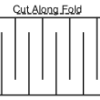
Great Openings: Slots, 35 Sense, and Hole In One
Source Institutions
These three short activities challenge groups to fit objects through paper and index cards: "Slots" presents the challenge for one learner to figure out which objects fit through a hole cut by another

Family Fort Challenge
Source Institutions
In this activity, learners will explore engineering concepts to construct a blanket fort using materials sourced from home.

Wet Pennies
Source Institutions
Learners initially test to see how many drops of liquid (water, rubbing alcohol, and vegetable oil) can fit on a penny.
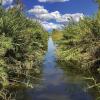
Water Engineering
Source Institutions
In this activity, learners will engineer a water irrigation system. Learners will create a ditch irrigation system -- or an acequia-- to move water with the help of gravity.
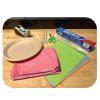
Build a Better Roof
Source Institutions
In this activity, learners will engineer a roof using simple materials to protect a construction paper person from a rainstorm.
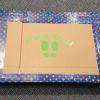
Paper Cup Stool
Source Institutions
In this activity, learners will explore how and why weight distribution works.

Tessellations
Source Institutions
In this activity, learners will engineer a new shape and use it to create a new pattern with no wasted space.

You're Grounded
Source Institutions
In this engineering activity, learners test the stability of towers they build out of cups, discovering that structures with more mass in the base are more stable.
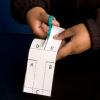
Make and Fly a Helicopter
Source Institutions
Learners follow the template to build and fly a paper helicopter.
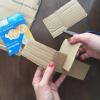
Cardboard Sculptures
Source Institutions
Learners explore the endless possibilities of cardboard engineering in this open-ended STEAM activity. Practice being creative by building structures with no glue, only cardboard and scissors.

Hot Stuff!: Investigation #4
Learners test two jars containing soil, one covered and one open, for changes in temperature. After placing the jars in the Sun, learners discover that the covered jar cools down more slowly.

Hot Stuff!: Investigation #1
Learners test two jars, one containing plain air and one containing carbon dioxide gas, to see their reactions to temperature changes.

A Recipe for Air
Learners use M&Ms® (or any other multi-color, equally-sized small candy or pieces) to create a pie graph that expresses the composition of air.
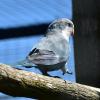
Perching Parrot
Learners explore the concepts of equilibrium and center of mass by seeing how non-symmetrical objects balance.

A Merry-Go-Round for Dirty Air
Learners build a model of a pollution control device--a cyclone. A cyclone works by whirling the polluted air in a circle and accumulating particles on the edges of the container.

Hot Stuff!: Investigation #2
Learners test two jars containing hot water, one covered with plastic and one open, for changes in temperature.
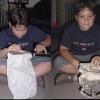
Let's Bag It
Learners observe and discuss a vacuum cleaner as a model of a baghouse, a device used in cleaning industrial air pollution.

Hot Stuff!: Investigation #3
Learners test two jars of ice water, one covered and one open, for changes in temperature. After placing the jars in the sun, learners discover that the covered jar cools down more slowly.
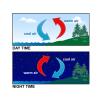
Turning the Air Upside Down: Spinning Snakes
Learners color and cut out a spiral-shaped snake. When they hang their snake over a radiator, the snake spins.

Cleaning Air with Balloons
Learners observe a simple balloon model of an electrostatic precipitator. These devices are used for pollutant recovery in cleaning industrial air pollution.
